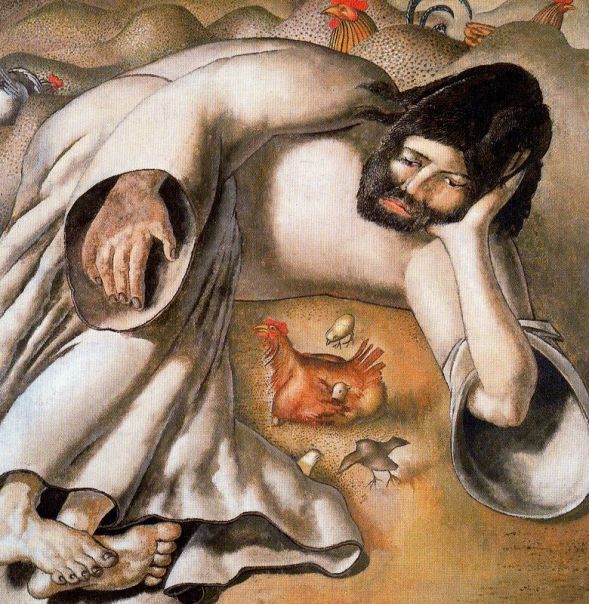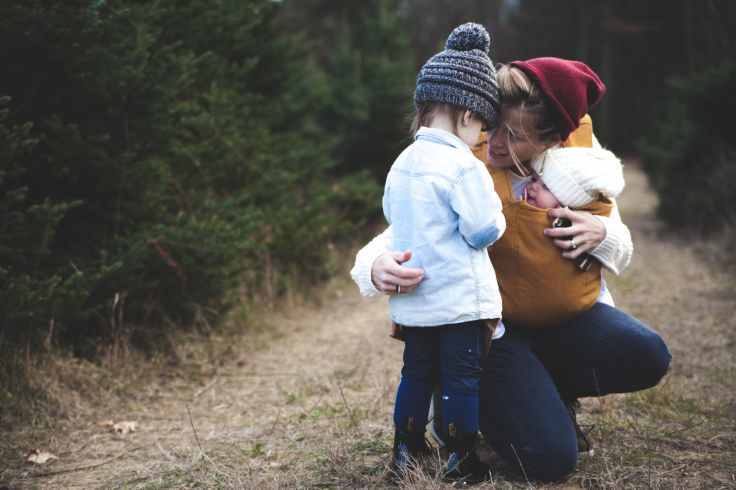Sugar-Coating and Muddy Waters
“But Naaman’s
servants went to him and said, ‘Master, if the prophet had asked you to do some
extraordinary act, wouldn’t you have done it? Why shouldn’t you do as he said: “Wash
and be clean”?’” 2 Kings 5:13
I have heard and read a
lot recently from people who complain about a “sugar-coated” gospel. First of
all, I’m not always sure what they mean. But, from experience, it usually means
they think other people should abide by certain rules and that too much “grace”
will simply let them get away with too much sin. Of course these same people
have their own sins to deal with which they either ignore, or for which they
are happy to accept as much grace as possible.
There is a delightful
story in the Old Testament that can be used to illustrate the idea of grace
with zero requirements for reception. Stay with me. I will try to tell the
story as concisely as possible.
Syria was a great kingdom
and Naaman was commander of the king’s army. He was highly respected and a good
soldier. But Naaman had leprosy.
Once, when the Syrians went
on raids, they brought a captive girl from Israel. She became the servant of
Naaman’s wife. The girl told her that there was a prophet in Samaria (the capital
of Israel) who could cure him of his leprosy.
We are going to jump ahead
in the story and see what happens when he and Elisha meet. Naaman arrived at Elisha’s
home and the prophet sent out a messenger to him, “Wash yourself seven times in
the Jordan River, and your skin will be healthy and clean.” The world “clean”
in this context means “healed” but can also refer to something that is “acceptable
to God.” Elisha was telling him to do a simple act and Naaman would be
completely whole.
But Naaman expected a
supernatural act. Like many of us, when we think about God doing something
special, we expect fireworks, lightning, thunder, voices, doves, or any number
of phenomena. “I thought he would at least come out of his house, stand
somewhere, call on the name of the Lord his God, wave his hand over
the infected place, and heal the skin disease,” says Naaman. He even
complains that Elisha didn’t have him wash in his own “home” rivers, the Abana or
Pharpar. “They have better water than any of the rivers in Israel!” Naaman
turns and leaves in anger.
Naaman’s servant pipes up with some wisdom. (By the way, do you notice how the two “servants” in this
story move it along? Never close your mind to the wisdom of the unlikely.) He
says, “If the prophet had asked you to do some extraordinary act, wouldn’t you
have done it? Why shouldn’t you do as he said: ‘Wash and be clean’?”
This must have been a
well-trusted servant because if I was Naaman I might have given him a piece of
my mind. “Hey, servant, whose side are you on, anyway? The dude didn’t even
come out of his house to greet me! This is insulting.”
But instead Naaman went
and dipped himself in the Jordan seven times, as the prophet had instructed.
His skin became “healthy again like a child’s skin.” I would have loved to be
on the scene for that moment. The muddy waters of the Jordan envelop this
warrior from a foreign land for the seventh time, he stands up, his hair and
beard dripping in the sun, and he draws his arms out of the water, seeing them
smooth and unblemished for the first time. Would he have run to the shore and
hugged his servant? Would have dipped himself an eighth time just for good
measure? All he did was go underneath the water of the Jordan seven times. He
did no “extraordinary act.” This foreigner, this warrior whose king had actually
enslaved an Israeli girl, this man was the recipient of God’s healing by simply
dipping himself in muddy waters.
Naaman returns to Elisha’s
home, finally encountering him face to face. “Now I know that there’s no god in
the whole world, except the God of Israel. So please accept a present from me,”
he says. Elisha refuses the gift, even though Naaman urges him twice.
So far, notice this:
Naaman did nothing to “earn” this healing. He was a foreigner from a
semi-hostile state. Indeed, he thought he should do some “mighty thing” to
receive it. Instead, he simply bathed in the Jordan River. There was a reason
for that, of course, pointing to the God of Israel as the one true God. But Naaman
had to meet no requirements for this healing.
And, after he is healed,
Naaman wants to give something in return. That is a normal human reaction, and
it speaks to his good character. But Elisha strongly refused. There was nothing
he did to “earn” his healing before it happened, there was no amount he could “pay”
in response to it afterward. It was free!
Now, follow me for a bit
more “sugar-coating”. He asks for someone to provide him “as much dirt as a
pair of mules can carry.” He promises to sacrifice to the Lord alone from that point
on, probably upon an altar built from the dirt. But, he does ask some
understanding. He says, “May the Lord forgive me when my master goes
to the temple of Rimmon to worship, leans on my arm, and I have to bow down in
the temple of Rimmon. When I do this, may the Lord forgive me for
this one thing.”
What? No way, Naaman. If
your commitment to sacrifice only to the Lord is real, you will quit that job,
or tell your boss that you are changed, brother! Dude, God will provide for
you. Stop working for that man!
Right? Put in our own
placeholder: “Now that you want to serve Jesus, you can’t do….that!” Get out of
that ungodly environment. Have some faith, bro. God will honor your faith!
So, what did the prophet
Elisha say when Namaan asks that the Lord “forgive me this one thing” when he
has to bow in the temple of idolatry because of his job? Elisha responds, “Go
in peace.”
Elisha was wise, and so
should we be. He left Namaan to work out the details of this new service to the
Lord.
Jesus refers to this
story in his first sermon in his hometown of Nazareth: “There were also many people with skin diseases in
Israel in the prophet Elisha’s time. But God cured no one except Naaman from
Syria.” (Luke 4:27) This made the people furious! Why? Because Jesus had
announced grace to “outsiders”! Maybe they thought he was “sugar-coating” the
gospel?
Nat Turney, lead pastor
at Open Table Fellowship wrote on the church's Facebook page:
I have been accused by
some of preaching a "candy-coated" gospel…I don't just preach a
"candy-coated" gospel, I preach a "Blue Bell ice cream sundae,
drenched with hot fudge, buried in whipped cream with a hundred cherries on
top" gospel. I preach a "deep-fried twinkie, covered in chocolate,
dusted with powdered sugar and drizzled with caramel" gospel. The gospel I
preach is so sweet, you'll need to have your blood sugar tested afterwards. The
gospel I preach and the message that I have devoted my life to is, as the
word "gospel" suggests, GOOD NEWS. So, yeah...the gospel I preach is
the "too good to be true" good news that the Creator of everything is
especially fond of you. He is more committed to you than you could ever be to
Him. He is working all things together for your good and will never, ever,
allow an ounce of your pain to be wasted. This is a gospel message that is
worth our devotion and that prompts us to shout from the rooftops that He is
good, all the time. Be blessed! (https://www.facebook.com/nat.turney)
The story of Naaman is
only a shadow of the beautiful GOOD NEWS of Jesus Christ. It is grace, all
grace. Yes, lives will be changed and transformed, but not because we get picky
with them and start telling them how to apply this grace. The Holy Spirit is
oh-so-much wiser than any of us.











